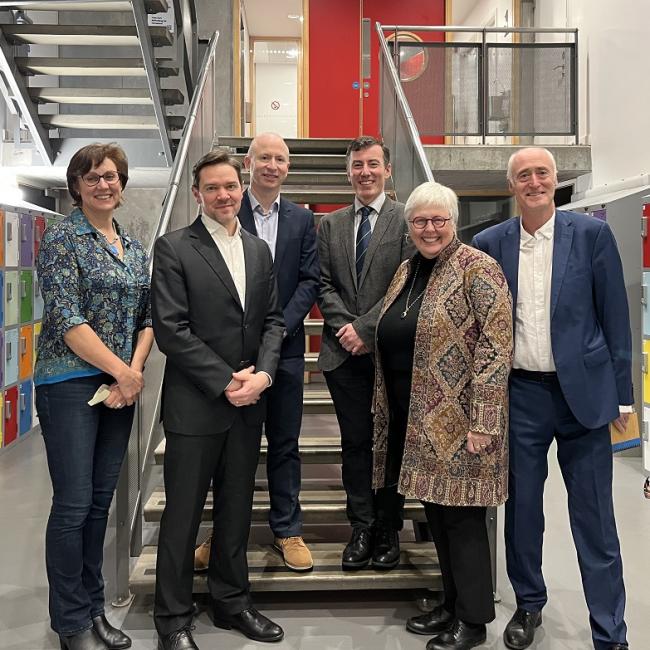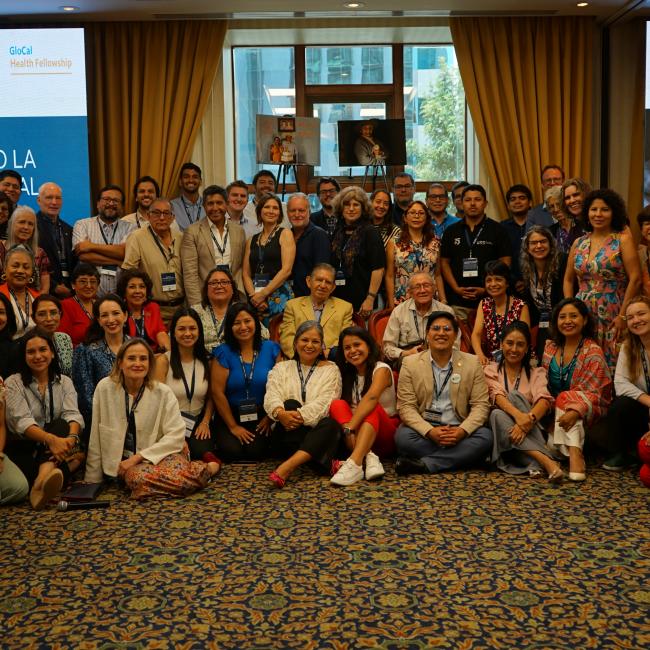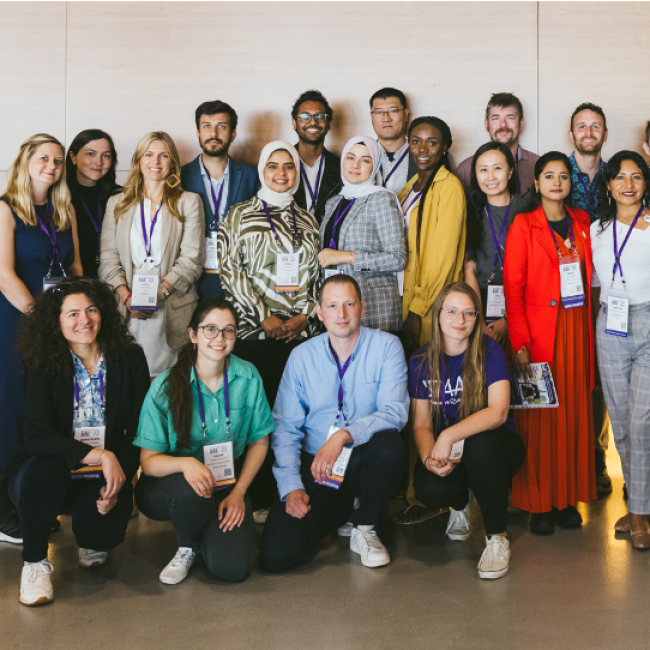A Journey of Respect: Leadership Lessons from Ghana
In this perspective, Atlantic Fellow Carlos Orellana reflects on his transformative experience during GBHI Leadership Week in Ghana, exploring the themes of respect, memory, and global collaboration for brain health equity.

Atlantic Fellow Carlos Orellana visits the Agape Academy in Accra, Ghana, during GBHI Leadership Week. Photo by Selorm Attikpo.
I write this as a middle-aged, privileged man from Chile—"the end of the world" as the southernmost country in South America—who, before traveling to Ghana as part of the Atlantic Fellows for Equity in Brain Health program, was unfamiliar with the rich history, struggles, and achievements of the African continent. I recognize, too, that one week in a country cannot capture the full reality of what is often called the “Global South”—if such diverse countries and cultures can even be grouped together. While Africa and Latin America are worlds apart, both regions share powerful similarities as well as deep distinctions.
Given these complexities, the opportunity to participate in Leadership Week in Ghana was more than a success; it was a necessity. The fellowship’s mission to train a new generation of brain health leaders demands two essential skills: understanding diverse health realities worldwide and fostering coordinated global action that respects these differences. Both skills are rooted in a single concept: respect. Respecting one another’s context and experiences is essential for effective, compassionate collaboration.


Leadership Week participants visit two important sites in Accra, Ghana: the historic Cape Coast Castle (left) and the Korle Bu Teaching Hospital (right). Photos courtesy of Carmen Hart and Kiggundu Rodney Erismas.
Understanding the Present: Health Equity in Action at Korle Bu Hospital
The thoughtfully designed week unfolded in three acts, each one crafted to reflect respect at its core. The first act focused on the present and took us to the Korle Bu Teaching Hospital. There, we witnessed how Ghana’s healthcare system, despite budgetary limitations, has achieved high standards of care through the extraordinary dedication and skill of its healthcare teams. We also attended a panel of experts who showcased the vast research happening across Africa to address neurological issues that affect brain health on a global scale. As Africa comprises a quarter of the world’s population, this work is essential to advancing global medicine. Medical research can no longer be centered on one population, which risks oversimplifying conditions and treatments that must reflect the true diversity of humanity.
Respecting one another’s context and experiences is essential for effective, compassionate collaboration.
—Carlos Orellana, Atlantic Fellow for Equity in Brain Health
Honoring the Past: Memory and Resilience at Cape Coast Castle
The second act, focused on the past, brought us to Cape Coast Castle, a place that symbolizes the power of memory. This historical site reminded us how essential it is to remember, both as individuals and as nations. In the pain of the dungeons, we confront humanity’s capability for cruelty toward one another. For me, this experience also called me to reflect on my own mixed European-Indigenous identity and the legacies of cultural subjugation across my continent. The lessons extend to my country, which, post-independence, engaged in wars of expansion that left a legacy of scars among its neighbors and within its borders.
Some may think that “forgetting” is a means to move forward, but history teaches us that forgetting can itself be a disease—not only of individuals, as in dementias, but of nations. Remembrance is essential to both respect and health.

Atlantic Fellows Kiggundu Rodney Erismas and Mawuli Lawson paint a mural—co-designed by Erismas and local artist Kingsley Deffor—at Agape Academy in Accra, Ghana. Photo by Selorm Attikpo.
Inspiring the Future: Education and Sovereignty at Agape Academy
The final act looked toward the future. Our visit to Agape Academy demonstrated a commitment to educating Ghana’s youth as a sovereign nation. Ghana continues to honor Kwame Nkrumah’s vision: "We face neither West nor East; we face forward." True brain health equity lies in nurturing future generations and fostering societies that are mentally resilient, empowered, and liberated from external control. It is essential to distinguish between collaboration and domination.
The path to respect involves engagement, remembrance, and the freedom to choose. Respect is love in action, and that is the lesson of this journey: in engaging deeply with others, I can understand, respect, and ultimately love them. The names of the countries and flags represented in my fellowship cohort are no longer abstract concepts. They are now connected to people with names, faces, and identities that I hold dear, enabling us to support one another as we work together to build a world of greater brain health equity.
Authors

Carlos Felipe Andrés Orellana Díaz, MD
Psychiatrist





